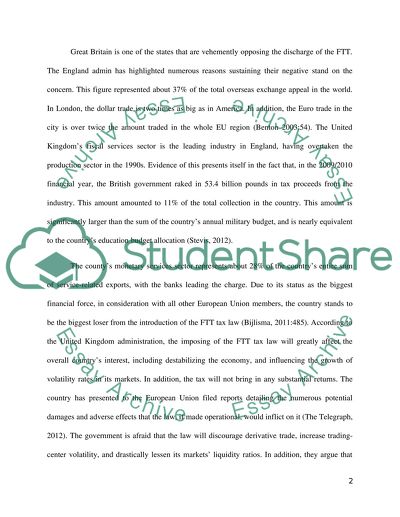Cite this document
(“Proposed European Union Financial Transaction Tax Essay”, n.d.)
Proposed European Union Financial Transaction Tax Essay. Retrieved from https://studentshare.org/finance-accounting/1447564-the-united-kingdom-should-drop-its-opposition-to
Proposed European Union Financial Transaction Tax Essay. Retrieved from https://studentshare.org/finance-accounting/1447564-the-united-kingdom-should-drop-its-opposition-to
(Proposed European Union Financial Transaction Tax Essay)
Proposed European Union Financial Transaction Tax Essay. https://studentshare.org/finance-accounting/1447564-the-united-kingdom-should-drop-its-opposition-to.
Proposed European Union Financial Transaction Tax Essay. https://studentshare.org/finance-accounting/1447564-the-united-kingdom-should-drop-its-opposition-to.
“Proposed European Union Financial Transaction Tax Essay”, n.d. https://studentshare.org/finance-accounting/1447564-the-united-kingdom-should-drop-its-opposition-to.


